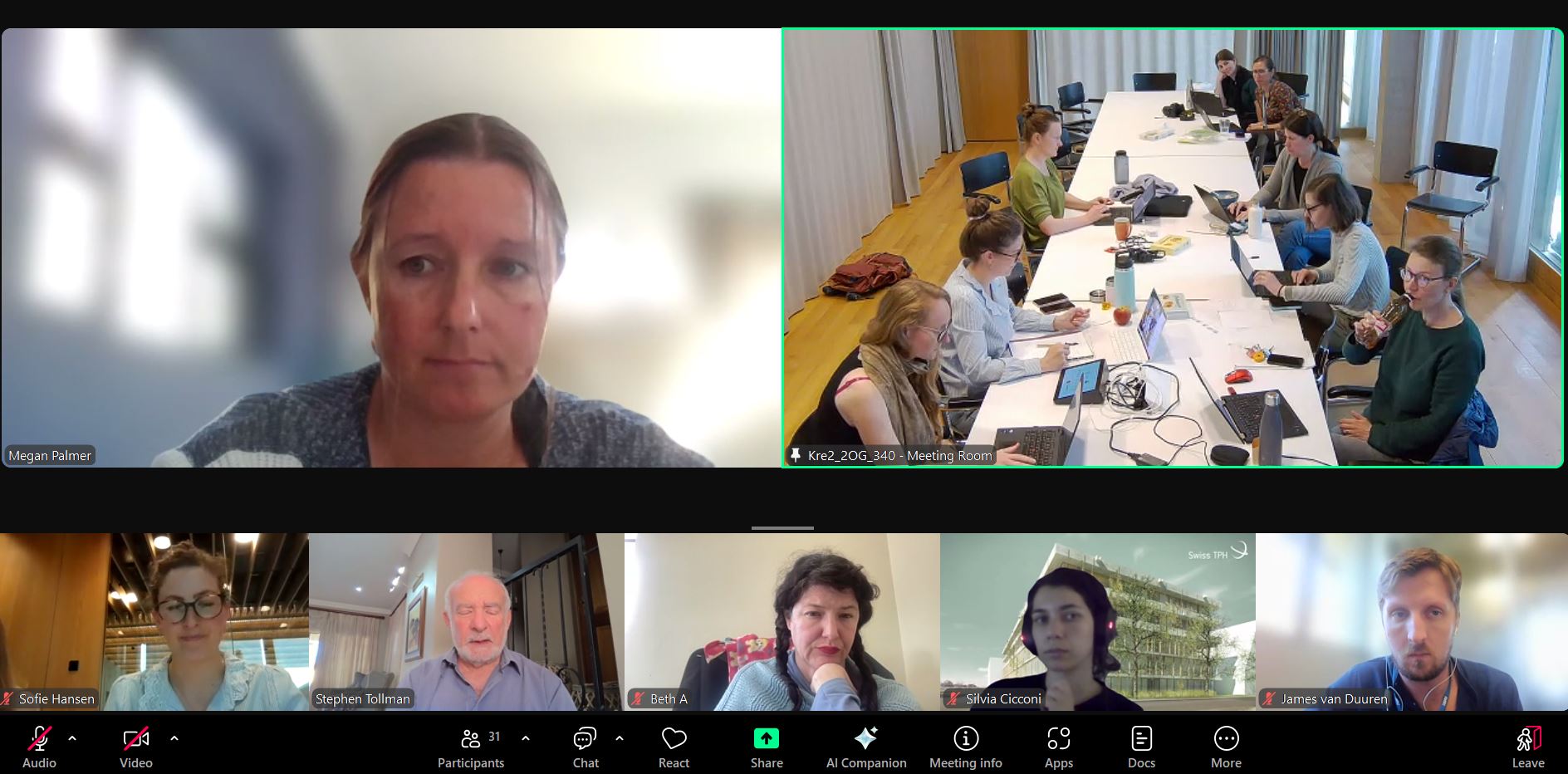
CONFERENCE: Consortium holds assembly to review progress, strengthen collaboration

The IMCI+ Consortium—an ambitious, multi-country research partnership committed to transforming the diagnosis and management of childhood pneumonia—held its mid-year project assembly from May 13 to 14, 2025. Among the key partners driving this initiative is the Ifakara Health Institute.
The two-day virtual gathering brought together experts, researchers, and institutional partners from across Africa and Europe to take stock of the consortium’s progress and renew their commitment to transforming child health care through innovation and collaboration.
Rooted in the WHO’s Integrated Management of Childhood Illness (IMCI) framework, the IMCI+ project introduces point-of-care lung ultrasound (LUS) as a complementary diagnostic tool for frontline health workers.
Pneumonia remains a leading cause of death in children under five globally, and the project aims to reduce preventable mortality by equipping primary health settings with accessible, accurate, and scalable tools.
By incorporating LUS into everyday clinical workflows, IMCI+ enhances the precision of pneumonia diagnosis, supports better clinical decision-making, and curbs unnecessary antibiotic use—addressing both child survival and antimicrobial resistance.
A collaborative virtual convening
The virtual assembly was chaired by Prof. Stephen Tollman of the University of the Witwatersrand (WITS) and convened partners in real time across multiple time zones, including Switzerland, South Africa, Tanzania, and Senegal. Local in-person gatherings were also encouraged, allowing for self-organized on-site discussions in the afternoons.
Day 1 of the meeting opened with a welcome from Prof. Tollman, followed by a strategic update from Dr. Kristina Keitel on the project’s overall status and governance. Maryam Jordaan and Jacques du Toit presented an overview of the study timeline, encompassing the randomized controlled trial (RCT), implementation study, and data analysis plan.
Key thematic sessions included a deep dive into Work Package 3, led by Luxi Lal, and a presentation on Work Package 2 by Megan Palmer. These sessions highlighted progress made, challenges encountered, and calls for cross-partner collaboration to maintain momentum.
On Day 2, the focus shifted to Work Packages 4 through 6, with updates from Aita Signorell, Evelyn Thsehla, and Robert Moshiro respectively. These discussions emphasized country-level implementation lessons and upcoming technical milestones.
The consortium meeting concluded with a briefing on financial reporting and administrative timelines by Miriam Bolz and Maryam Jordaan, setting the stage for the second half of 2025.
The General Assembly followed, again chaired by Prof. Tollman, where institutional representatives reviewed outstanding decisions and reaffirmed alignment around project goals.
Consortium partners, institutional leadership
The IMCI+ Consortium is anchored in a strong, interdisciplinary network of partner institutions. In Switzerland, the University of Bern and the École Polytechnique Fédérale de Lausanne (EPFL) provide scientific leadership, alongside the Swiss Tropical and Public Health Institute (Swiss TPH), which contributes operational and field research expertise.
South Africa is represented by WITS and the University of Stellenbosch, both of which play critical roles in the study’s design, data collection, and evaluation frameworks.
Tanzania’s contribution is led by the Ifakara Health Institute and the Muhimbili University of Health and Allied Sciences (MUHAS), both recognized for their deep experience in health systems research and community-based interventions.
Senegal’s involvement is driven by the Cheikh Anta Diop University in Dakar (UCAD), while Erasmus Medical Center in the Netherlands lends its strength in pediatric clinical research. The Butterfly Network, based in the United States, supports the consortium with cutting-edge ultrasound technology and implementation support. Meanwhile, the African Institute for Mathematical Sciences (AIMS) contributes artificial intelligence and machine learning expertise, with the aim of enhancing ultrasound image interpretation in real-world settings.
This collective expertise spans public health, clinical care, data science, biomedical engineering, and implementation research—creating a dynamic ecosystem capable of producing evidence that is both scientifically rigorous and practically actionable.
Looking ahead
The IMCI+ project is currently in the active implementation phase, with over 3,500 children expected to be enrolled and more than 10,000 lung ultrasound assessments to be completed across participating countries.
The findings are expected to shape both national policy recommendations and global child health guidelines, particularly those under review by the World Health Organization. Final results will be disseminated by early 2028.
As reaffirmed during the May 2025 virtual assembly, the IMCI+ Consortium stands as a model for how multi-national collaboration, grounded in scientific innovation and local expertise, can tackle complex health challenges. With its ambitious scope and strong foundation, the project is poised to redefine how childhood pneumonia is diagnosed and managed across Africa—and beyond.
